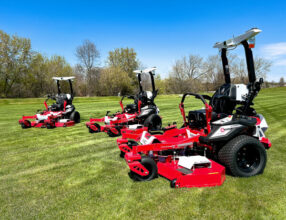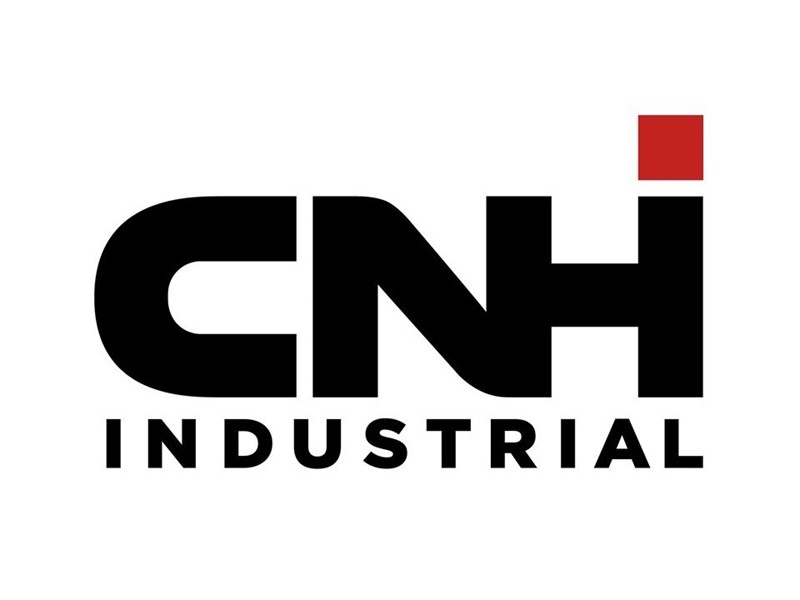Value fosters dealer’s growth
By Julie Ritzer Ross
“It’s not about price. It’s about value and commitment to the customer.”
Such is the business formula Lynn Pesson Jr., follows at Southland Engine Company, Inc., where he serves as president. And there’s no denying that the formula is working: Besides the 35,000-square-foot flagship store in Lafayette, La., the outdoor power equipment dealership has grown to include three other Louisiana stores: a 4,800-square-foot unit in New Iberia, built in 2005; a 4,000-square-foot location in Rayne, opened in July 2009; and an 8,500-square-foot store, which opened in Upper Lafayette at the end of February 2010.
Southland has indeed come a long way from 1960, when Pesson’s parents, Lynn Sr. and Janice, launched it as an industrial engine shop. Five years later, changes in the industry sparked a transition to the outdoor power market. Lynn Pesson Jr. took over the business in 1987; his parents continue to own it, but are not involved in daily operations. Today, Lynn Pesson Jr. and his wife Glenda lead a team of 34 employees, with the four locations carrying a full complement of new equipment from Dixie Chopper, Gravely, Hustler, Maruyama and Shindaiwa, as well as pre-owned equipment and OEM parts. Southland has been Gravely’s number-one dealer for the past 10 years. It is also the only Gravely, Shindaiwa, Maruyama and Hustler dealer in its territory, an achievement Pesson attributes to his focus on supporting existing lines instead of “constantly casting around” for new ones.
“Lynn Pesson brings a passion to power equipment retailing like very few that I know,” said Dan Ariens, president of Ariens Company, the manufacturer of Gravely brand equipment. “Our companies share so much in common because we both embrace the mantra of Continuous Improvement; a passion to pursue perfection through constantly driving out the waste in any system, yielding increasingly stronger financial performance year over year. That journey for continuous improvement — matched with Lynn’s passion to be the best he can be, in everything Southland does — makes for a very strong retailer with a winning formula.
“The passion for retailing power equipment meets a continuous improvement junkie in Lynn Pesson; this defines who Southland Engine is and why they are one of the best in our industry,” Ariens continued. “We are both privileged and honored to have a long relationship with Lynn and Glenda Pesson. We have many special relationships with many dealers we like to consider part of our family; Lynn and Southland Engine hold a very special place in our family.”
Southland Engine focuses on supporting its existing lines instead of seeking new ones, which is a big reason it is the only dealership in its territory to carry equipment from Hustler and Gravely, as well as Maruyama and Shindaiwa.Value is key
Just as Southland remains unlike many other dealers in its approach to inventory, Pesson refuses to follow retailers’ increasingly heavy reliance on price as a competitive differentiator and catalyst for building the business. That approach entails providing value in many forms to Southland Engine’s customer base, which is 40-percent commercial, 40-percent residential and 20-percent government accounts.
“We’ve always found that price doesn’t mean that much, if anything at all, as long as all customers receive some kind of value in return for the money,” Pesson stated. “Their attitude is, ‘Okay, so I’m paying a little more, but look what I get in return.’ We call this our ‘Value Formula,’ and it has many different components.”
Benefits not available from Southland’s competitors top the list. For example, a “Southland Engine Protection Program” offers free pickup and delivery of all equipment needing service for the first 90 days after purchase, as well as half-price pickup and delivery until the product’s warranty expires. Complimentary sharpening of mower blades for the life of each mower bought from Southland is also included.
Another unique advantage involves Southland’s comprehensive Web site at www.southlandengine.com, where customers can check the status of repair jobs; determine the whereabouts of parts (e.g. ordered, in transit, on-site); and find out when their equipment will be ready for pickup, thanks to Infinity by c-Systems Software, Inc. The Web site also features a 400-page OEM parts catalog with a comprehensive search function that enables users to identify and order the parts they need by brand, category and/or model. OEM parts are shipped directly to customers, with the ability to purchase them from the dealer restricted to parties that have previously done business with Southland. In the next 60 days, Pesson plans to enhance the Web site by incorporating a password-protected area where customers will be able to view the warranty registrations for equipment they have purchased from Southland and any outstanding invoices.
“Customers have told us time and time again that the benefits of the repair-tracking portion of the Web site alone beat any discounted pricing they may be able to arrange somewhere else,” Pesson noted. “For commercial accounts, knowing the night before what equipment is ready means more efficient, more accurate scheduling of their own maintenance jobs. It’s a convenience for consumers, too. They can plan their day better, decide more easily when they’re going to come get their mower, and not stress themselves out trying to call us from work to get information on their jobs or worrying because they can’t contact us in the off-hours.”
Pesson added that the Web site has also proven to be instrumental in increasing Southland’s consumer sales by bolstering its residential customer base. Individuals surfing the Internet in search of alternatives to big-box retail chains quickly notice all that the dealer has to offer in terms of product assortment and, more importantly, such perks as real-time, round-the-clock access to repairs, parts and other information. “They decide that if they’re going to spend $4,000 or $5,000 on a top-grade piece of equipment instead of buying a new mower every few years, they may as well do it where they’re going to get the service to match,” Pesson observed.
Banking on private label credit
Meanwhile, a comprehensive private-label credit card program not only affords additional value to commercial and residential customers, it also has a direct positive impact on Southland’s bottom line. Until four years ago, Pesson utilized a financing program that could be used only on transactions of $1,000 or more. “It didn’t offer much value to our customers or to us because it didn’t provide revolving credit, which is what many people need and want,” Pesson said. “Plus, it didn’t cover repairs.”
Southland’s program, executed through Mahwah, N.J.-based TD Retail Card Services, offers TD Retail’s Yard Card for consumers and Yard Card PLUS for commercial customers. All told, about 62 percent of Southland’s sales and repairs are transacted on the cards, with the higher proportion coming on the commercial side.
Pesson said the Yard Card helped to spark an overall 30-percent sales increase in the four years since it was implemented. It has also generated $1 million to $1.3 million worth of financed transactions while freeing up Southland‘s receivables and bringing a steady stream of loyal customers to all stores. Besides being able to access another line of credit rather than using up credit on other bank cards, Southland Engine customers are attracted by special Yard Card and Yard Card PLUS program advantages, such as a variety of special terms that includes flexible financing.
“Both residential and commercial customers like the flexibility of holding these cards,” Pesson noted. “The program keeps them coming back to us because they can finance not just purchases, but thousands of dollars worth of repairs, too — so they don’t have to worry about how to pay for them out of pocket. They, as do I, also like the convenience of only having to apply for the card once, instead of each time they want to make a financing arrangement, which was the case with our former program.”
Offering private-label credit has been especially effective in helping Southland to mitigate the effect of recessionary conditions on the business. For one thing, Pesson explained, the option to make a series of interest-free or low-interest payments encourages customers to complete non-essential repairs they might otherwise have delayed. By the same token, the cards’ favorable terms facilitate “upselling” of accessories. “It’s been great for trimmer sales,” Pesson reported. “We can usually sell two to three attachments with each trimmer that way, which adds up.”
Mike Lupo, vice president of TD Retail Card Services, attributes such success with the private-label credit card program to Pesson’s focus on leveraging its benefits. “The fact that the Yard Card is supported by all of Southland’s equipment vendors has a part in this, but Lynn goes above and beyond,” Lupo asserted. “He has trained his employees on how to promote financing to customers and takes advantage of many of our special programs. He holds an annual open house, which I attend every year to encourage new applications. It’s all taken very seriously.”
New growth avenue
Pesson believes further positive impact on the bottom line will come from the new store, which occupies a 6-year-old building on a well-trafficked road, adjacent to a Lowe’s Home Center and a half-block from a major interstate highway. Several factors spurred his decision to open a fourth location, including a wish to capitalize on a growing trend among consumers to shop locally rather than incur high fuel prices and spend excessive time traveling to stores elsewhere. The desire to better control his own destiny figured into the equation too. “Manufacturers are on a big push for market share to increase sales,” said Pesson. “When this happens, they set up new dealers across town from existing ones. The existing dealers can lose two to three points on their margin in the same lines. We feel that dealer should be us, not someone else.”
Pesson also believed Southland’s money would be best spent on a controllable real estate investment rather than in bank CDs or stock, especially given the current market. Moreover, “even with the economy just starting to show signs of a turnaround, property and construction is still off 20 to 25 percent in south Louisiana, so the investment was a great one,” he continued. “And for us, there was no better time to do this than in a downturn. Under other conditions, I never could have purchased such a large building, in such a great location, for the price I paid.”
Southland Engine handles all of its service work out of its flagship store in Lafayette, La., and does so in an extremely efficient manner, thanks to a bar coding system for all parts; a paperless system for its service tickets and jobs; and skilled service techs such as (left to right) Shane Wright, Herman DeJean and Charles Hebert. (Photo courtesy of Allen Breaux Studio & Gallery Inc.)Automation is key
But Pesson’s efforts to position the business for growth do not end there. He also leverages technology to improve operations while supporting Southland’s value proposition.
Several years ago, Pesson implemented a bar coding system for all parts, a move he believes has bolstered operating efficiencies in several ways. These include reducing the potential for selling the wrong part and increasing the processing of customer tickets by allowing part numbers to be scanned instead of manually entered with the line number into the point-of-sale system.
Additionally, a paperless system for handling service tickets and jobs replaces paper-based methods. Service ticket information is transmitted via computer from the point of service to the front desk. The list of parts for each job is generated in computerized fashion; service technicians then find the parts already laid out on the service bench when they are ready to begin working. All service is handled at the flagship location, with parts maintained in a 19,500-square-foot warehouse at the main store. The paperless system has played a major role in boosting Southland’s shop efficiencies from 68 percent to 81 percent, and slashed downtime per shop ticket by an estimated 20 minutes, according to Pesson.
“Of course, this all saves us labor, but more importantly, it enables us to better service our customer and promote a value proposition,” he said. “That’s what we’ve always been about.”
Pesson added that he is not adverse to further change. “One key thing I learned from my parents is that you have to have the ability to change if you’re going to succeed in business,” he asserted. “When they handed Southland over to me in 1987, they said I had to do something different to grow it from the $300,000 business it was. That’s when we first got into the commercial and government side, which no one else in the market was doing and which was where our big growth came from. We didn’t get back into the homeowner side in a big way until 2001, when consumers started growing tired of the big-box stores.”
Further, although Pesson’s parents handed him the reins to Southland, he is taking a somewhat different approach to succession and is grooming existing employees to assume responsibility for the company. “My three kids are still young — 18, 11 and 3 years old — so of course there needs to be this kind of mechanism in place should something happen now,” he explained. “However, even if they were older, I would do the same. Kids just aren’t ready to walk into a business and start running it on their own; they need the help of someone who has been around for awhile and knows the ropes. Still, I don’t plan on going anywhere soon. We have more to do.”
Julie Ritzer Ross is a freelance writer who regularly writes about retail operations, payments and technology.



